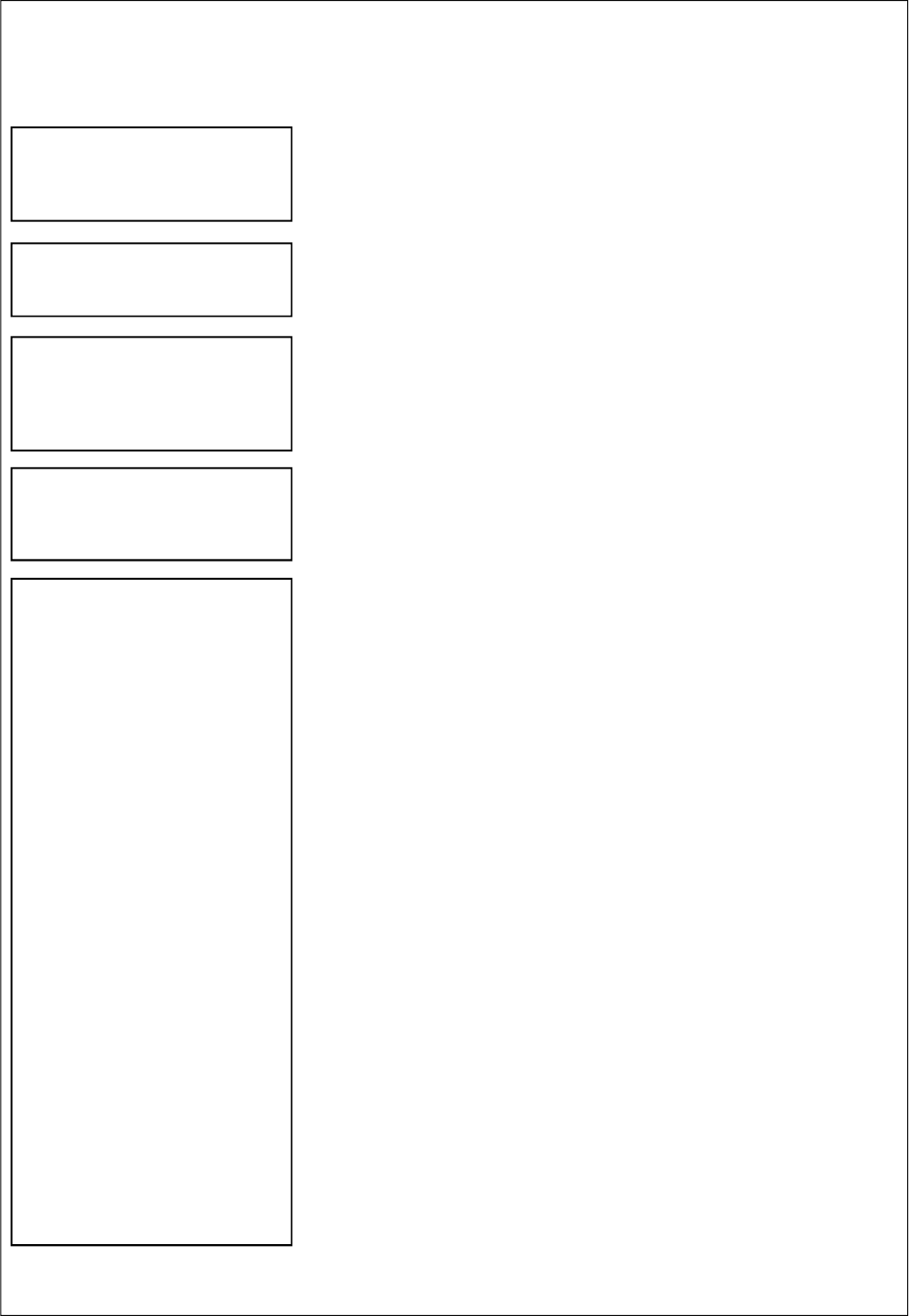
3
Keep the appliance area clear and
free from combustible materials,
gasoline, and other flammable va-
pors and liquids.
Carefully supervise young children
when they are in the room with the
heater.
Do not place clothing or other
flammable material on or near the
appliance. Never place any objects
in the heater.
You must operate this heater with
the heater door with screen in place.
Make sure the heater door with
screen is in place before running
heater.
WATER VAPOR: A BY-PRODUCT OF
UNVENTED ROOM HEATERS
Water vapor is a by-product of gas
combustion. An unvented room heater
produces approximately one (1)
ounce (30ml) of water for every 1,000
BTU’s (.3kw’s) of gas input per hour.
Unvented room heaters are intended
as supplemental heat (a room) rather
that a primary heat source (an entire
house) in most supplemental heat
applications, the water vapor does not
create a problem, in most applications
the water vapor enhances the low hu-
midity atmospheres experienced dur-
ing cold weather.
The following steps will help insure
that water vapor does not become a
problem.
1. Be sure the heater is sized properly
for the application, including ample
combustion air and circulation of the
air.
2. If high humidity is experienced, a
dehumidifier may be used to help
lower the water vapor content of the
air.
3. Do not use an unvented room
heater as the primary heat source.
SAFETY INFORMATION
Continued
1. This appliance is only for use with
the type of gas indicated on the rat-
ing plate. This appliance is not con-
vertible for use with other gases.
2. Do not place Propane/LP supply tank
(s) inside any structure. Locate Pro-
pane/LP supply tank(s) outdoors.
3. If you smell gas
lShut off gas supply.
lDo not try to light any appliance.
lDo not touch any electrical switch:
do not use any phone in
your building.
lImmediately call your gas supplier
from a neighbor’s phone.
Follow the gas supplier’s
instructions.
lIf you cannot reach your gas
supplier, call the fire department.
4. This heater shall not be installed in
a bedroom or bathroom.
5. Do not use this heater as a wood-
burning heater. Use only the logs
provided with the heater.
6. Do not add extra logs or ornaments
such as pine cones, vermiculite, or
rock wool. Using these added items
can cause sooting. Do not add lava
rock around base. Rock and debris
could fall into the control area of
heater. After servicing, always re-
place screen before operating
heater.
7. This heater is designed to be
smokeless. If logs ever appear to
smoke, turn heater off and call a
qualified service person. Note: Dur-
ing initial operation, slight smoking
could occur due to log curing and
heater burning manufacturing
residues.
8. To prevent the creation of soot, fol-
low the instructions in Cleaning and
Maintenance.
9. This heater needs fresh air ventila-
tion to run properly. This heater has
an Oxygen Depletion Sensing
(ODS) safety shutoff system. The
ODS shuts down the heater if not
enough fresh air is available. See
Air for Combustion and Ventilation,
pages 5 through 6. If heater keeps
shutting off, see Troubleshooting,
pages 17 through 19.
10. Keep all air openings in front and
bottom of heater clear and free of
debris. This will insure enough air
for proper combustion.
11. If heater shuts off. Do not relight un-
til you provide fresh, outside air. If
heater keeps shutting off, have it
serviced.
12. Do not run heater:
l Where flammable liquids or
vapors are used or stored.
lUnder dusty conditions.
13. Before using furniture polish, wax,
carpet cleaner, or similar products,
turn heater off. If heated, the vapors
from these products may create a
white powder residue within burner
box or on adjacent walls or furniture.
14. Do not use this heater to cook food
or burn paper or other objects.
15. Do not use heater if any part has
been under water. lmmediately call
a qualified service technician to in-
spect the room heater and to re-
place any part of the control system
and any gas control which has
been under water.
16. Turn off and unplug heater and let
cool before servicing. Only a quali-
fied service person should service
and repair heater.
17. Operating heater above elevations
of 4,500 feet could cause pilot
outage.
18. Do not operate heater if any log is
broken. Do not operate heater if a
log is chipped (dime-sized or
larger).
19. To prevent performance problems,
do not use Propane/LP fuel tank of
less than 100 lbs. capacity.


















